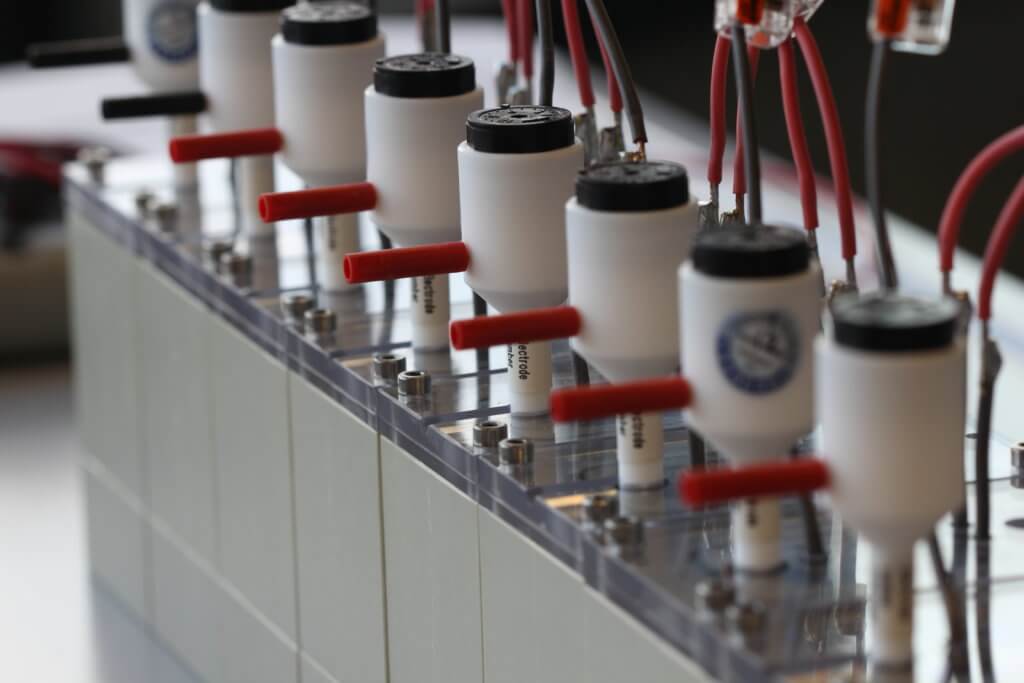
From CBI-funded projects to university collaborations, advanced lead batteries are a technology embodying Europe’s drive for innovative technologies to deliver ambitious decarbonisation and electrification targets.
Creating synergy between academia and industry through battery research has been a cornerstone of CBI’s technical programs. In a project underway at Fraunhofer ISC, they’re working with Ford’s Research and Innovation Center, TU Berlin and Moll Batterien to improve regenerative braking performance in hybrid cars.
This critical market, including micro-hybrids which are predicted to represent over 80% of new vehicles in Europe by 2030, relies on advanced lead batteries to deliver greater fuel efficiency and reduced carbon emissions. Specifically targeting Dynamic Charge Acceptance (DCA), the research is ensuring the most advanced lead batteries are used in vehicles, to support the transition to a low-carbon future.
In another project with Fraunhofer ISC partnering with Poland-based Wroclaw University, a research team is using tailor-made carbons and utilizing advanced physical and electrochemical techniques to study key performance indicators for lead battery technology. Specifically for micro-hybrid vehicles, this research is an important step in responding to market demand from Europe’s automotive sector.

Transitioning now to the buzz words ‘energy storage’, CBI’s latest technical research program funded a suite of projects dedicated to the driving innovation in advanced lead batteries for this growing market. As the world shifts to cleaner sources of energy and the need for more reliable grids, battery energy storage research is essential.
In an ongoing project with Spanish research institute INMA and battery manufacturer Exide, high-tech neutron diffraction techniques are being used by scientists to gain a deeper understanding of the charge/discharge processes occurring in a lead battery. In a first-of-its-kind approach used to study the technology, the research will improve energy efficiency and the Partial State-of-Charge (PSoC) cycle life of batteries for energy storage systems (ESS).
Tapping directly into the new goals set out in CBI’s Technical Roadmap, this energy storage research is paving the way for advanced lead batteries to enhance their performance for renewable and utility energy storage.
A new university research partnership between the University of Warwick and Loughborough University will show how advanced lead batteries can support electricity grid energy storage and important low-carbon systems facilitated by renewable solar and wind energy.
Funded under CBI’s 2021 research program, the university collaboration is developing more advanced levels of modelling and prediction of lead battery behaviour for utility grid storage. The aim is to facilitate better battery management and higher uptake of lead batteries to support the energy grid.
This is just a snapshot of the innovation underway across Europe, all focused on advanced lead batteries. Europe’s climate change goals are driving enhanced research for battery technologies, and CBI with the EU lead battery industry and other university and research institutes partners are striving to ensure lead batteries remain one of the central players in this shift to a low-carbon future.
Stayed tuned for Part 2!